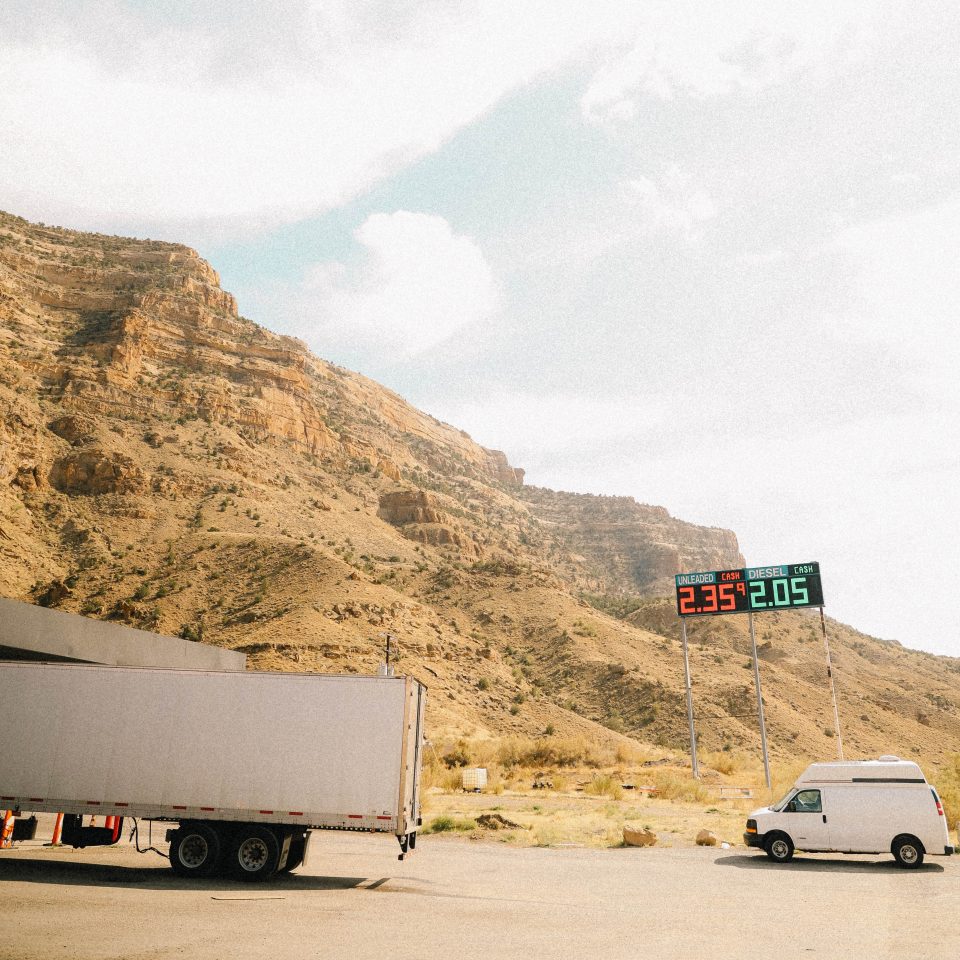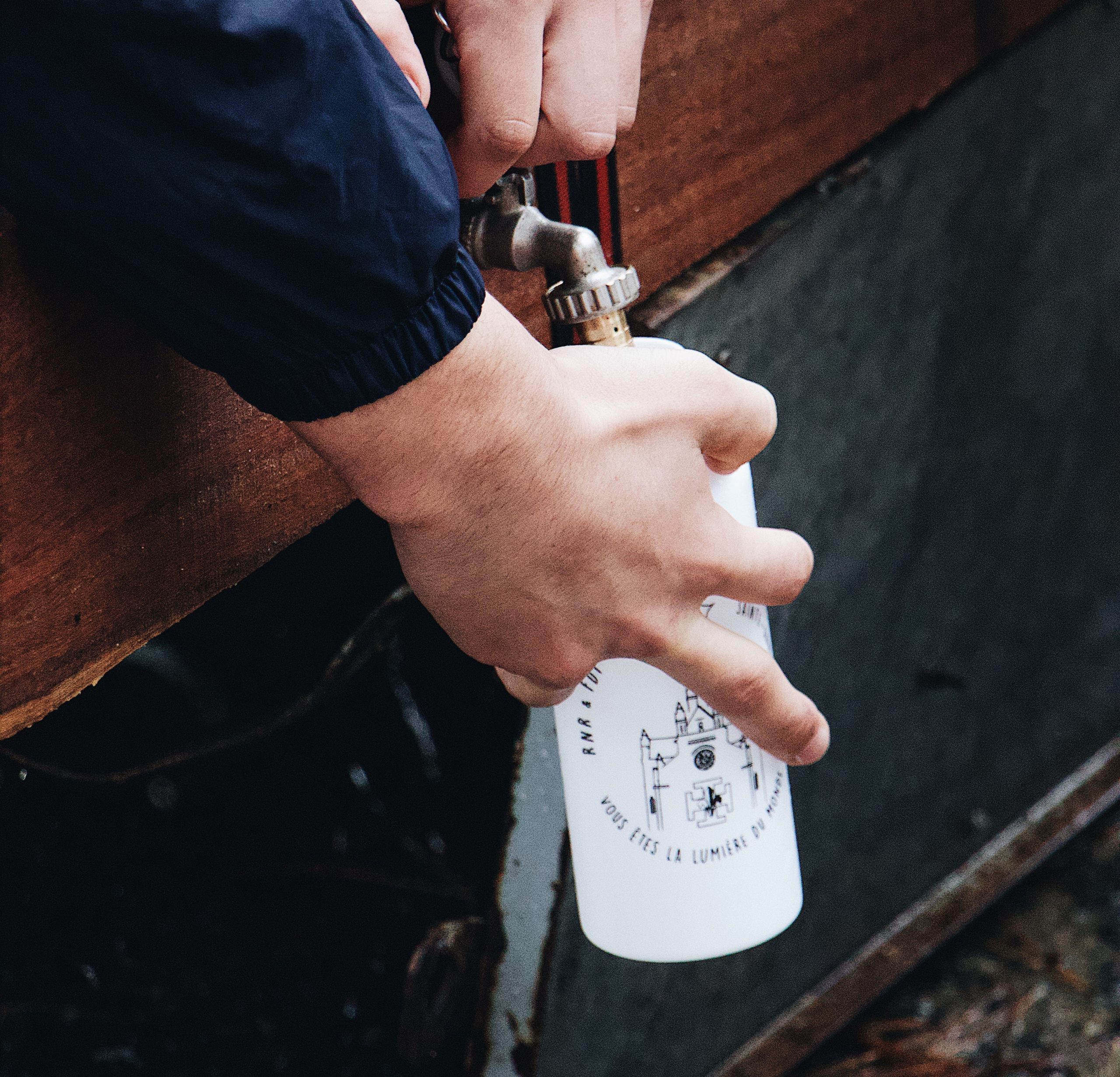Since the primary purpose of using a school bus requires a (Commercial Driver License) CDL or a special form of licensing, a lot of skoolie enthusiasts are confused about the legal situation of driving them without these special licenses.
This might make you wonder “do I need a CDL to drive a skoolie?”.
In today’s article, we’ll explain the legal citation of a skoolie license in the US and whether a CDL is necessary for driving one. Let’s jump right in!
Is Having a CDL Necessary to Drive a Skoolie?
The short answer here is no. In most states, you don’t need any special licensing to drive a school bus that was converted to an RV for personal use.
Keep in mind that if you buy an unconverted school bus, it might still be registered for commercial use, so you’ll need to re-register the vehicle for personal or recreational use before the previously mentioned rule applies.
There are also a few exceptions where some states might need some form of special skoolie licensing, but more about that in the following sections.
The General Rule of CDL
Technically speaking, most states and government laws don’t recognize “commercial vehicle” as a legal term.
In other words, the CDL regulations are solely based on the purpose of the trip, and would only apply if you’re driving the vehicle (skoolie or not) for commercial purposes.
However, if you’re using the vehicle for recreational purposes, you’re only governed by the trailer and weight classification of the vehicle.
Classes of CDL
CDL licensing includes 3 classes, which are:
- Class A: This includes any rig that is towing a trailer that exceeds 10,000 lbs or any trailer or tractor with a combined weight rating in excess of 26,001 lbs
- Class B: This includes any rig that doesn’t tow a trailer that exceeds 10,000 lbs or any vehicle with a combined weight rating in excess of 26,001 lbs.
- Class C or Class B – HazMat/Passenger: This includes any vehicles with a description that doesn’t meet the previous two classes, and is designed to either carry hazardous materials or transport 16+ passengers (driver included)
All the previously mentioned classes are only applicable if you’re driving the bus for commercial purposes, so they generally don’t apply in the case of skoolies.
Legal Exceptions for Skoolies Licensing in Some States
Now that you know that the vast majority of American states don’t impose any special rules regarding the use of school buses for recreational purposes, here’s a brief guide about the few exception states that do. Let’s check them out:
- California: Any vehicle that weighs more than 26,000 lbs or over 40 ft long needs a driver with a Class B license while any vehicle that tows more than 10,000 lbs needs a driver with a Class A License.
- Kansas: Any single vehicle that weighs more than 26,001 lbs needs a driver with a Class B CDL while any combined vehicle with a total weight of 26,001 or more needs a Class A CDL.
- Maryland: Any vehicle that has a total weight that exceeds 26,000 lbs requires a driver with a Class B License
- Connecticut: Any single vehicle that weighs more than 26,000 lbs needs a driver with a Class B license while any combined vehicle with a total weight of 26,000 or more needs a Class A license.
- Michigan: a trailerless skoolie shouldn’t be a problem but you’ll need a special Recreational Double R License in order to tow a trailer with a fifth wheeler (buses included)
- Nevada: Any single vehicle that weighs more than 26,000 lbs needs a driver with a Class B license while any combined vehicle with a total weight of 26,000 or more needs a Class A license. You also need a special J Endorsement in order to drive a vehicle towing more than 10,000 lbs.
- New York: any vehicle that weighs over 26,000 lbs needs a driver with an R Endorsement
- North Carolina: Any single vehicle that weighs more than 26,000 lbs needs a driver with a Class B license while any combined vehicle with a total weight of 26,000 or more needs a Class A license.
- South Carolina: Any single vehicle that weighs more than 26,000 lbs needs a driver with a Class E license while any combined vehicle with a total weight of 26,000 or more needs a Class F license.
- Pennsylvania: Any single vehicle that weighs more than 26,000 lbs needs a driver with a Class B license while any combined vehicle with a total weight of 26,000 or more needs a Class A license. However, buses with air brakes require a Class B non commercial license
- New Mexico: Any single vehicle that weighs more than 26,000 lbs needs a driver with a Class B CDL while any combined vehicle with a total weight of 26,000 or more needs a Class A CDL.
- Wisconsin: Any vehicle with a total length that exceeds 45 ft needs a driver with a CDL
- Texas: Any single vehicle that weighs more than 26,000 lbs needs a driver with a Class B CDL while any combined vehicle with a total weight of 26,000 or more needs a Class A CDL.
- Wyoming: Any single vehicle that weighs more than 26,000 lbs or towing an item that weighs less than 10,000 lbs needs a driver with a Class B License. If the weight of the towed item is over 10,000, you’ll need a Class A License
- Hawaii: Any single vehicle that weighs more than 26,000 lbs needs a driver with a Class B license while any combined vehicle with a total weight of 26,000 or more needs a Class A license.
What About Air Brake Endorsement?
Similarly, almost no states have specific rules regarding the private use of heavy vehicles that use air brakes.
The only exception in the US is in Pennsylvania, where you’ll need to pass the test of a Class B non-commercial driver before using a Skoolie with air brakes.
Does a Skoolie Stop at Weight and Height Stations?
Weight and height stations are usually exclusive to large trucks and heavy machinery on wheels with many states exempting school buses anyway, so you won’t have to go through these if you’re not using the bus for commercial purposes.
As for the height, unless you’re building an abnormally high roof deck or converting a double-decker, you shouldn’t worry about it, as most states have no special regulations for non-commercial vehicles that are below 13 ft and 6 inches.
Wrap Up
With that said, you now know more about the legal structure of a skoolie license along with a solid answer to the question “do I need a CDL to drive a skoolie?”.
As you can see, the CDL license is more concerned with the nature of using the vehicle, rather than the specifications themselves. So, as long as you’re using the school bus for recreational purposes, you’re good to go!
In other words, you won’t need any special licensing to drive a skoolie in the US, apart from a few exceptions in some states. For information on other skoolie legal questions, check out our posts on skoolie insurance and skoolie re-titling.







